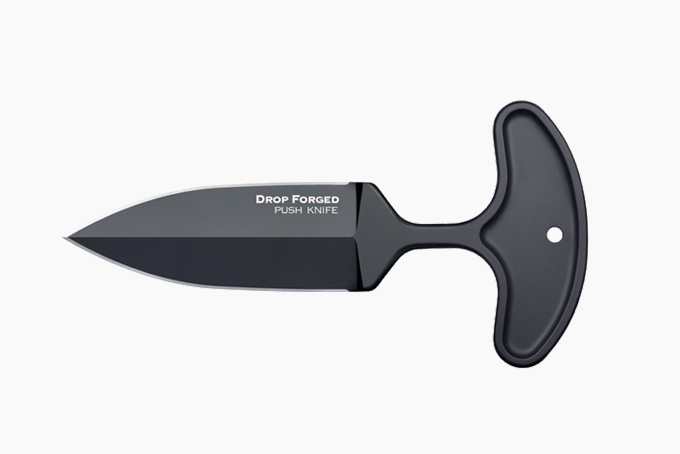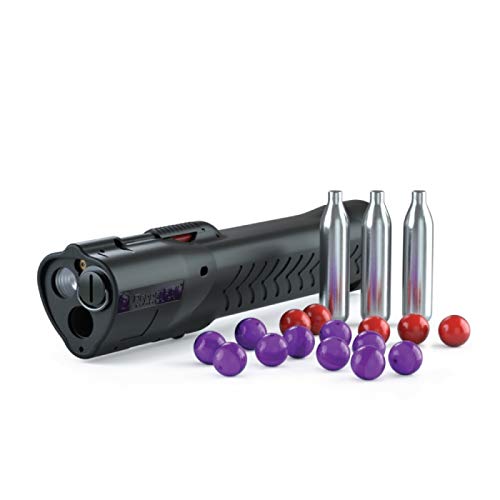
If you've been reading the articles about self defense awareness, then you know what you need to do. This article will cover the Physical and Mental preparations that are necessary. We will also discuss ways you can protect yourself. Here are some ways you can prepare. No matter your age, it is never too late to start self-defense awareness techniques. Have a look.
Self-defense awareness
Regardless of whether you're an experienced fighter or a newbie, self-defense awareness is an invaluable skill to have. Self-defense awareness is the ability to recognize violence and prepare accordingly. This awareness doesn't necessarily mean you need to be suspicious. It simply means you need to be aware of your options and prepared to fight for your rights if necessary. You can achieve self-defense awareness by becoming more aware of the situation around you and developing awareness in yourself.
In addition to learning the many methods of self defense, you can also attend a SAFE course. You will learn basics techniques like the bear hug and the palm strike. It is essential to continue training for physical self-defense. Alexandra Gordon-Smith a junior studying English learned that self-defense awareness helps her feel safe when she commutes to campus. She learned basic self-defense techniques through SAFE and feels more confident.
Mental preparation to self-defense
Although physical self-defense is an important part of learning the basics, it is equally important to train your mind. By understanding your body's reactions to threats, you will be better prepared to react in a safe and effective manner. Developing a positive attitude is essential to being able to respond effectively to danger. Knowing how to deal effectively with stress and fear is a crucial skill that can make all the difference in your life.

To realize you are the best person around, you must have the mentality to not be taken advantage. They will seek out weaknesses in your resistance to being pursued. Mental preparation is essential. It is possible to practice a strong no and this will complement your training in self-defense. Here are some tips to help teach yourself how to say "no."
Self-defense: Physical preparation
Do not look at your phone while you're walking. Instead, carry your keys with you. Also, ask yourself what makes you feel unsafe. If the person is someone you know or a romantic partner, try to be verbal and polite. If the person is aggressive or intimidating, make it clear that you don't want to be around them. In addition, respect the boundary of others. Basic knowledge of self defense awareness can help you be in the best possible position.
While situational awareness is a great asset to your safety, it will be useless if you don't know what to look for. Knowing how to spot the signs of violent offenders can help you improve your self defence skills. This will help you recognize the signals and pick them up. This will give your defense a significant advantage.
Techniques used in self-defense
It is crucial to be aware of your self-defense in all situations. You must be aware and alert to your surroundings. An effective strategy to self-defence is to always look people in the eye. Although it may be uncomfortable to look at someone in the eye, it is important that you remember that potential attackers will know who you are and won't choose you as their target. This awareness is essential for recognizing precarious actions and suspicious behavior.

It is vital to recognize your weaknesses before an attacker begins to choke. The eyes, nose and throat are the most common targets. These attacks can be prevented by knowing the right move. Each of these areas has its own self-defense technique. Here are some basic self-defense techniques that you can use when you find yourself in dangerous situations.
FAQ
Can I consume alcohol while working out?
Yes. Alcohol can increase energy expenditure and speed up recovery, as well as reduce soreness.
Also, alcohol increases insulin sensitivity which makes it easier to absorb glucose.
However, alcohol can cause dehydration, which can slow down your metabolism. Also, alcohol can reduce testosterone production, which may lead to lower muscle-building potential.
These are the reasons women should not drink alcohol before going to work out. Women who drink heavily should wait at the least 24 hours before exercising.
Breastfeeding women should stay away from alcohol.
Men should only consume one drink per day.
Why is Metabolic Wellness the Key to Aging Well
People are living longer lives today than at any point in history. As they live longer, they also get sicker. While medical science has made incredible advances, it's becoming increasingly obvious that the current approach is not working.
We must change the way that we look at health and aging. For healthy aging, it is important to look at metabolic well-being - not just weight reduction but overall wellbeing.
And if you want to live an active life for decades to come, you should ensure that your metabolism stays strong and healthy throughout your entire lifetime.
There are many options to improve your metabolic health. One of those ways is to incorporate these 7 foods into your diet:
-
Resveratrol has been proven to increase cellular longevity. They also provide antioxidants and vitamins C & E.
-
Beans like lentils and pinto beans are excellent fiber and plant-based protein sources. These nutrients help to keep blood sugar levels constant so they don't spike and crash.
-
Broccoli's sulforaphane has been shown to protect DNA from damage in research. It could even slow down the growth of cancer.
-
Chia Seeds are high in omega-3 fatty acids and fiber. They are also high in antioxidants and proteins. All of these nutrients can promote heart health and brain function as well as gut health.
-
Green Tea is rich in polyphenols known as catechins. Green tea's catechins have been linked with reduced bone fractures as well as cardiovascular disease, cognitive decline, dementia, and increased diabetes risk.
-
Salmonis packed with vitamin D, low in saturatedfat and one of best sources of lean meat.
-
Walnuts have omega-3s and antioxidants such as alphalipoic acid (ALA). ALA protects against inflammation and boosts energy production.
How many calories should I eat daily?
The exact amount varies depending on the person. On average, between 2000 and 2500 calories a day. The factors that determine how many calories are needed for you include your gender, age, height, activity level, lifestyle, and gender.
Which dietary supplement is good for weight loss?
Exercise and diet are key to losing weight. Some people find that certain supplementation can be helpful.
Studies have shown that omega-3 fatty acid may be beneficial in weight loss. Omega-3 fatty acid is an essential fat that is important for brain function as well as cell membrane integrity. They can be found in seafoods like salmon, tuna or shrimp, as well as cod liver oil.
Other research suggests that green tea might be beneficial for weight loss. Green tea contains catechins. These antioxidants may be able to increase metabolic rate and encourage weightloss.
Statistics
- By John Thompson Take a whopping 38% off a set of PowerBlock Pros. (menshealth.com)
- According to the American Heart Association, blood pressure should be checked at least once every two years, beginning at age 20. (my.clevelandclinic.org)
- The PRS enabled risk stratification for overall prostate cancer and lethal disease with a four-fold difference between men in the highest and lowest quartiles (HR, 4.32; 95% confidence interval [CI], 3.16-5.89). (pubmed.ncbi.nlm.nih.gov)
- 10 pounds in a month is likely during a lean bulking phase, especially for beginners. (muscleandstrength.com)
- An estimated calorie range for moderately active adult males falls between 2,200 to 2,800 calories per day, depending on age. (eatright.org)
External Links
How To
How can I burn fat and exercise?
Exercise can help you burn calories and increase your metabolism.
At moderate intensity, you will lose weight easily.
These tips can help you to burn fat while training:
-
Cardio exercises can include running, walking, swimming or cycling.
-
Three times per week, exercise for 30 minutes.
-
Add strength training to your workouts if you are looking to lose more weight.
-
Avoid doing intense exercises. You can build muscle and not break down muscle tissue.
-
Keep hydrated during exercise. Water flushes out toxins, and keeps your body properly hydrated.
-
Choose low-fat protein shakes after working out. Protein shakes boost energy and repair muscle tissue.
-
Take smaller meals throughout each day to avoid feeling hungry.
-
Don't skip breakfast! Skipping breakfast can leave you feeling tired and sluggish.
-
Take care to your mental well-being. Stressful situations can slow metabolism.
-
Keep a positive attitude. Studies show that people who believe they're overweight gain more weight than those who think they look pleasing.
-
Get enough rest. It is harder to lose fat if you don't get enough sleep.
-
Stay active. Move around at least once an hour.
-
Maintain a healthy diet. Eating right keeps you feeling full and satisfied longer.
-
Find ways to relax. Tenseness can cause stress hormones to break down muscle tissue.
A balanced diet provides all the nutrients necessary for growth and development.
Six small meals per day is better than three large meals. This gives your body more time to digest the food you eat.
You need about 500 milligrams of calcium daily to maintain strong bones. Calcium is found in dairy products like yogurt, fortified milk beverages, orange juices, cereals and bread.
Calcium is found in green leafy vegetables, beans, tofu, seeds, nuts, and cheese.
Vitamin D is essential for calcium absorption. It's found in fatty fish, egg yolk, and some fortified foods.
Vitamin E is important for skin health. It can be found as a vegetable oil, wheat germ, peanuts or almonds.
Your body needs zinc to maintain normal immune function and heal wounds. Zinc can also be found in legumes, oysters, meats and whole grains.
Zinc deficiencies can lead to fatigue, decreased appetite, depression, and reduced immunity.
Eating too much sugar causes insulin resistance, which increases blood glucose levels. Insulin resistance is linked to weight gain.
Insulin resistance develops when there are high levels of free radicals in the bloodstream. Free radicals can be molecules with unpaired electrons that cause damage to cell membranes.
The most common sources of free radicals include food additives.
Free radicals can lead to cancer and heart disease, diabetes mellitus, arthritis, asthma, and premature aging.
The best way to avoid free radicals is to eat a balanced diet high in antioxidants. Antioxidants protect against oxidative damage.
Vitamin C, beta carotene (found within citrus fruits, carrots, sweet potatoes and spinach), Vitamin E (found inside nuts, olive oils, avocados and eggs), and Vitamin C (found among mangoes.
Selenium, copper as well as manganese and zinc are some other antioxidant nutrients.
Selenium protects cells against oxidative damage from free radicals. Selenium may be found in Brazil nuts as well tuna, liver and kidneys. It can also be found on shrimp, cod, turkey, beef lamb, pork, chicken, and other foods.
Copper protects your eyes, brain, eyes and red blood cell. Copper is found in shellfish, poultry, meat, and organ meats.
Manganese forms an essential part of bone structure. Manganese can be found in brown rice and spinach as well as bananas, prunes raisins, oatmeal, lentils, and oatmeal.
Zinc is necessary for average growth, reproduction, and wound healing. Zn is found in lean meats, poultry, white fish and eggs.